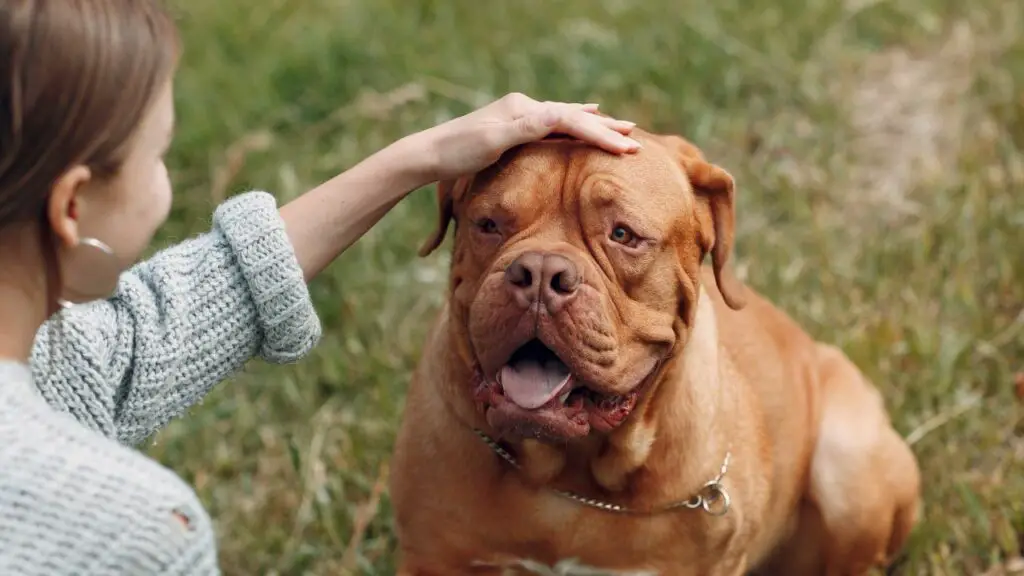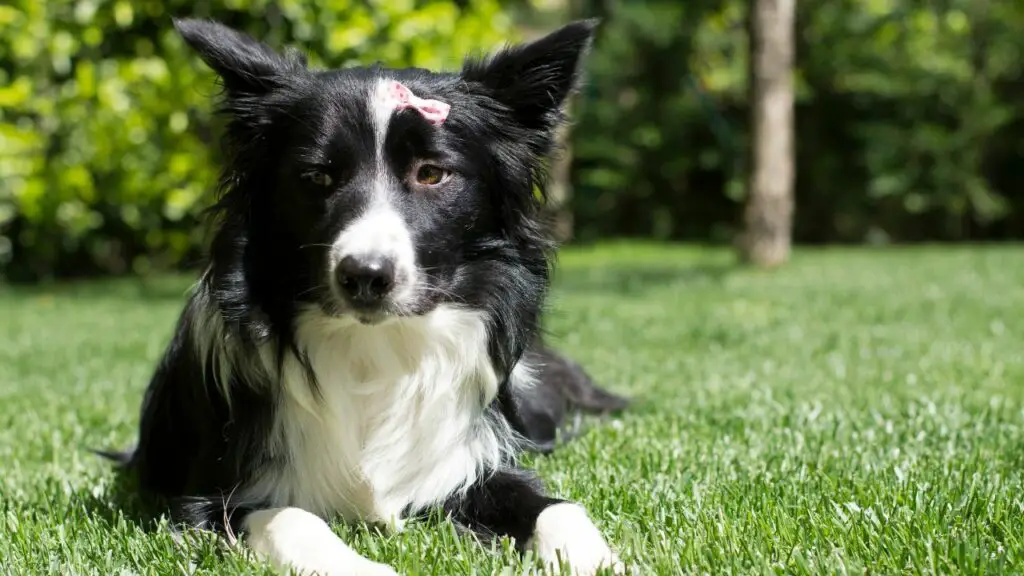Beneath their wagging tails and wet noses lies a world of deep feeling. Certain dog breeds possess an exceptional sensitivity, picking up on subtle shifts in emotion and responding with an intensity that can both melt your heart and require careful handling. From the soulful gaze of a Cavalier King Charles Spaniel to the anxious quiver of a Chihuahua, these nine breeds experience the world with a heightened emotional acuity. Understanding their sensitive nature is key to building a strong bond and ensuring their well-being. Prepare to delve into the unique emotional landscape of these deeply feeling companions.
When we picture dogs, we often imagine joyful, energetic creatures bounding around with excitement. However, some dog breeds are more sensitive and thrive in peaceful, quiet settings. Being sensitive isn’t a flaw; it simply means these dogs are more emotionally tender and respond deeply to their environments.
Sensitive dogs might react strongly to stern looks or harsh words, whereas others might not flinch. This sensitivity makes them incredibly attuned to their owner’s feelings, often creating a deep, empathetic bond. It’s important to remember that sensitivity in dogs is often rooted in genetics, making some breeds more prone to these traits than others. But this doesn’t mean they lack the capacity to be social, happy, or fun-loving.
Understanding and respecting their sensitive nature allows you to nurture a dog that is both a gentle companion and an enthusiastic partner in all your adventures. If you’re seeking a dog that mirrors your emotions and connects with you on a profound level, these sensitive breeds might just be your perfect match.
Most Sensitive Dog Breeds
1. Dogue de Bordeaux
The Dogue de Bordeaux, known for its protective nature due to its breeding history, tends to be quite sensitive to its environment. This breed may instinctively bark at unfamiliar presences as a way of guarding their family, but with proper training, this behavior can be well-managed.
Early and comprehensive socialization is crucial for Dogue de Bordeaux puppies. Exposing them to a variety of people, pets, and settings is key to helping them develop into well-adjusted adults, preventing shyness or fearfulness. Despite their imposing appearance, these dogs are incredibly sensitive and require a trusting relationship with their owner. AKC notes that harsh training methods are not suitable for this breed; instead, they respond best to discipline that is firm yet gentle.
Adaptable to various living situations, the Dogue de Bordeaux can thrive even in an apartment setting if their physical and mental needs are met. This breed is not suited for the overly timid or excessively busy person, as they require dedicated time and understanding to truly flourish.
2. Australian Shepherd
Australian Shepherds are energetic, protective, and incredibly attuned to their environments. As a herding breed, they possess an acute visual sensitivity, often noticing subtle movements and details that other breeds might overlook. This heightened awareness makes them exceptionally vigilant but also predisposes them to anxiety, especially in situations where they cannot exercise control.
Given their breeding background, Australian Shepherds have a natural inclination to manage and direct the movement of their “herd,” whether that’s sheep in a field or the members of their human family. This need for control, combined with their high energy levels, means that they require regular, vigorous exercise, thorough socialization, and consistent companionship to remain balanced and happy.
Training an Australian Shepherd with positive reinforcement is highly effective, tapping into their strong desire to learn and please their owners. This approach not only fosters a positive learning environment but also helps mitigate their anxiety by providing clear, consistent commands and expectations.
3. Staffordshire Bull Terrier
Staffordshire Bull Terriers, commonly known as Staffies, present a strong and muscular exterior that might seem intimidating at first glance, but this perception belies their true nature. These dogs are not just playful; they are also deeply sensitive and crave human interaction. Known for their loyalty, Staffies form close bonds with their owners and often desire constant companionship. This can sometimes result in them being overly clingy, and they may experience anxiety when left alone.
Given their impulsive and sometimes stubborn nature, training a Staffie requires patience, persistence, and a firm hand. It’s crucial to start socialization early and maintain it consistently throughout their lives, especially since they were originally bred for dog fighting.
Staffies possess a high intelligence level, necessitating regular mental and physical stimulation to keep them engaged and in good shape. Their fearless and profoundly loyal nature makes them excellent family protectors, although this same trait can lead to challenges if they perceive a threat to their loved ones.
4. Rottweiler
Despite their sturdy and formidable appearance, Rottweilers have a tender side that yearns for understanding and gentle handling. Known for their deep loyalty and strong desire to please, Rottweilers are highly responsive to both emotional and physical cues, making them exceptionally attuned to their owners’ feelings.
To cultivate their naturally loyal and affectionate disposition, early socialization and ongoing mental stimulation are essential. These activities help to mold a well-rounded character, preventing behavioral issues and enhancing their sociability. Rottweilers are particularly prone to separation anxiety due to their intense bond with their human families, making them best suited for homes where someone is present for much of the day.
Many Rottweilers relish opportunities to cuddle and connect, traits that also make them excellent therapy dogs. Their intuitive nature allows them to read human emotions effectively, providing comfort and support just when it’s needed most.
5. Golden Retriever
Golden Retrievers are known for their sensitivity, particularly in training situations where they thrive with a gentle yet firm approach. This sensitivity often comes from their deep desire to please and their natural empathy toward human emotions, making them exceptionally responsive to their owner’s feelings and commands.
To ensure they develop into well-adjusted adults, it’s crucial that they receive proper socialization with people and other animals early in their lives. Without this, they may exhibit signs of fearfulness or defensive behavior.
These dogs excel when training is based on positive reinforcement and emotional support. AKC notes that Golden Retrievers are inherently social and friendly, exhibiting warmth not just towards their family but also towards strangers and other pets. Their loving and playful nature makes them excellent companions, thriving in environments where they can interact frequently and build strong bonds with those around them.
6. Cavalier King Charles Spaniel
Cavalier King Charles Spaniels, with their enchanting eyes and regal demeanor, is the epitome of a companion breed that thrives on close human interaction. These charming dogs often struggle with separation anxiety and can become quite distressed when left alone for extended periods. Symptoms of their distress may include destructive behavior, excessive vocalization, or attempts to escape.
Incredibly sensitive to the tone of voice and emotions of their owners, Cavaliers respond best to gentle guidance and positive reinforcement. Harsh reprimands or punishment can be not only counterproductive but also deeply damaging to their emotional well-being.
Given their need for constant company, Cavaliers do best in homes where they can interact frequently with their family members and are not left alone for long hours. Their emotional health is tightly linked to their physical health; they require regular veterinary check-ups, a well-balanced diet, and plenty of affection and companionship to stay happy and healthy.
7. Doberman Pinscher
Dobermans are incredibly sensitive dogs, with emotions that can be easily affected. Known for their loyalty, they develop deep bonds with their families and thrive on constant interaction and companionship. This breed’s need for attention is so strong that they can become clingy and may suffer from separation anxiety if left alone for extended periods.
With their high intelligence and a natural inclination to lead, Dobermans can sometimes try to outsmart their owners. This can lead to unruly behavior if they sense that their owner is not confidently taking charge. They require an owner who is firm yet kind, clear, consistent, and patient in communication.
Emotionally sensitive yet instinctively protective, Dobermans are determined to defend their family and home. They need to feel part of a strong, secure pack, where their protective nature can be properly channeled and appreciated.
8. Labrador Retriever
Labrador Retrievers are celebrated for their loyalty, affectionate nature, and remarkable sensitivity to their owners’ emotions. These traits make Labs exceptional companions, particularly skilled at reading human feelings and offering comfort through a gentle nudge or their calming presence at precisely the right time. Their intelligence and eagerness to please also make them superbly suited for roles as therapy or assistance dogs.
Renowned for their gentle, tolerant, and easy-going temperament, Labradors are typically friendly toward strangers, other dogs, and are exceptionally patient with children. Consistently ranked as America’s favorite dog breed, Labradors thrive on affection and love being at the center of family activities.
Although their size might exceed the typical lap dog, Labradors will often attempt to curl up in your lap, seizing every opportunity for a cuddle. This endearing behavior is just one of the many reasons why they continue to be beloved by so many.
9. Border Collie
Border Collies, renowned for their sharp intelligence and intense work ethic, are also notably sensitive to various stimuli such as sound, movement, and even reprimands. This heightened sensitivity is deeply ingrained in their breeding and temperament. Originally bred to herd livestock, Border Collies had to be acutely attuned to commands and environmental signals without constant guidance from their handlers, which makes them highly responsive to subtle cues in their surroundings.
However, this same sensitivity can become a drawback. Border Collies’ keen awareness can lead them to become overly reactive and possibly anxious, particularly when they lack adequate mental and physical stimulation. WebMD points out that if they become bored or are left alone for too long, their sensitivity can turn inward, leading to behaviors that may include excessive barking, chewing, or other forms of destructiveness.
For Border Collies to thrive, they require an environment that offers plenty of activities and mental challenges. They flourish in homes where they can receive consistent attention and are involved in activities that harness their natural herding instincts and cognitive abilities.
Conclusion
Sensitive dog breeds, from the loyal Labrador Retriever to the intelligent Border Collie and the protective Staffordshire Bull Terrier, have a profound connection with human emotions that makes them exceptional family members and companions.
These dogs are not just pets; they are emotional anchors, often serving roles as emotional support animals or rescue dogs due to their innate ability to understand and react to human feelings. Breeds like the Australian Shepherd and the Golden Retriever demonstrate time and again their capability to provide comfort and emotional well-being to those around them.
Whether it’s the focused energy of a Border Collie or the empathetic nature of a Labrador Retriever, each requires a nurturing environment that values their emotional insights. Owners of such breeds understand that these dogs respond strongly to their environment and need consistent affection and understanding. In return, these sensitive breeds offer unparalleled companionship, making them perfect for anyone seeking a deep, empathetic relationship with their pet.
While all dogs possess unique sensitivities, certain breeds are known for their deeply emotional natures. This heightened sensitivity, while endearing, requires owners committed to providing a calm, consistent environment. From the gentle Greyhound to the devoted Golden Retriever, these breeds thrive on positive reinforcement and gentle guidance. Understanding their emotional needs – managing stress, providing ample affection, and ensuring clear communication – is crucial for their well-being and fosters a strong, loving bond between dog and owner. Ultimately, a sensitive dog, in the right hands, offers a deeply rewarding companionship.












